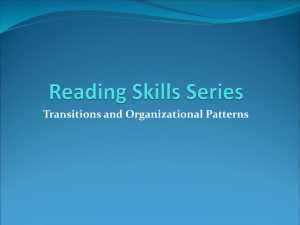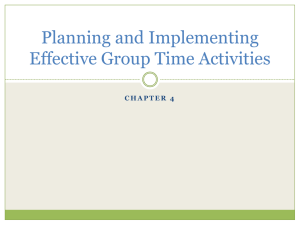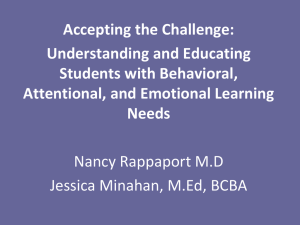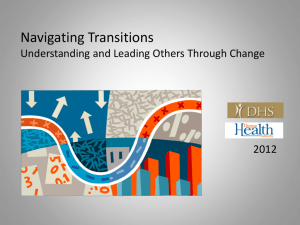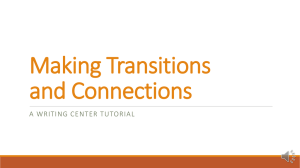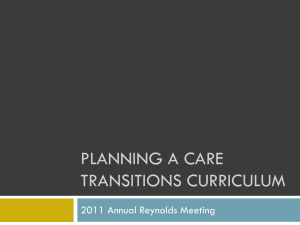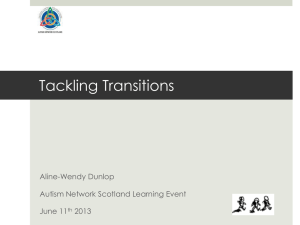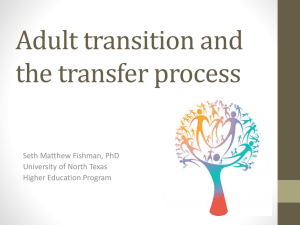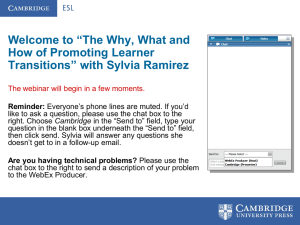Poverty and social disadvantage (2)
advertisement
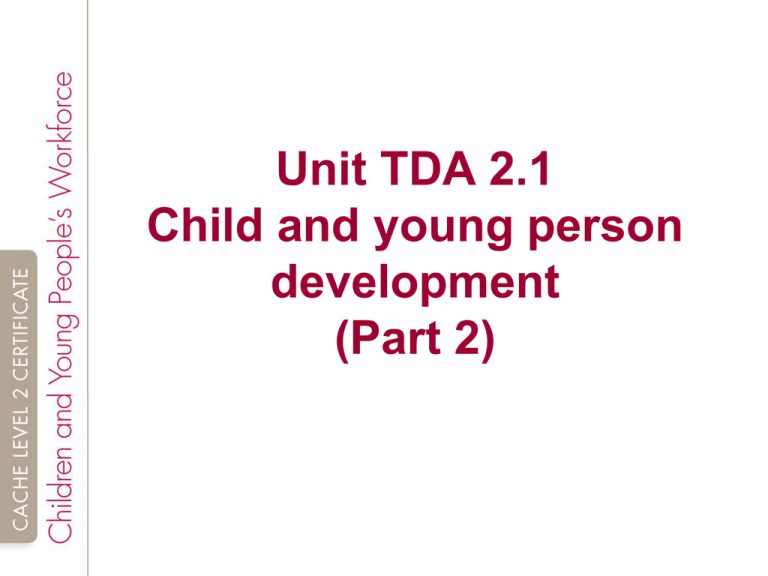
Unit TDA 2.1 Child and young person development (Part 2) TDA 2.1 – Learning outcomes 2 &3 What can have an effect on children and young people’s development? Learning Outcomes • All will be able to identify factors that influence health and development • Most will know how different factors can affect an individual’s development • Some will be able to know how health related factors can influence their own development Connector • With the person beside you, think about what influences the development of children and young people? • Come up with as many ideas as possible Influences on the development of children and young people 2.1 Environmental factors Diet Opportunities for play Housing Poverty and social disadvantage Parental health and lifestyle Emotional and social factors Accidents Infection Diet Obesity What effects might this have? Possible conditions that may occur due to a poor diet Dental caries / tooth decay Which foods and drinks can cause this? Failure to thrive More likely to get colds and bronchitis What is this? Anaemia (Nutritional) Due to lack of iron, folic acid and B12 vitamin Which foods are good for supplying these nutrients? Infections Diphtheria Tetanus Polio Whooping Cough Measles Meningitis Mumps Rubella Activity 1 Do some research on these (2 infections per group) that can have an effect on a child/young person’s heath and development. Feedback to class Extension: Find out about any other infections Poverty and social disadvantage (1) Poverty is the greatest threat to the healthy development of children and young people in the UK. Possible effects: • Young people and children may be more at risk of an accident or illness. Why do you think this might be? • Children and young people may have to go without meals, clothes etc. Poverty and social disadvantage (2) • The child/young person’s diet may not be good. What foods do you think they might miss out on and what would be the consequences? • A child/young person’s living conditions may be poor. Do you know anyone in this position? • The child may be smaller at birth. • The child/young person’s education/work may suffer. Can you think why this might be the case? Housing Homes which are damp and/or unheated Risk of infections Low-income families are more likely to live in: Densely populated and unattractive neighbourhoods Few gardens and play areas Overcrowded conditions Some families housed in ‘hotels’, B&Bs etc: shared facilities. Accidents • Some childhood accidents have lasting effects on a child’s healthy growth and development. • Many accidents are preventable. Which accidents could be prevented? How could accidents be prevented? Environmental Factors Water pollution Noise pollution Air pollution How might these affect a child/young person’s health and development? The importance of play for healthy child development • Through play, children learn and understand about the world and the people they meet. • Play influences all aspects of a child’s development. • Play is important for a child’s: relationships physical coordination ideas and creativity feelings spiritual development. Emotional and social factors • • Socialisation (the development of social skills) is all about relating to others. Emotional development is all about feelings. How a child feels will be influenced by many of the factors that affect the development of social skills. • Factors that affect the development of social skills: genetic inheritance attachment physical factors economic and environmental factors upbringing having role models culture and gender family size and position in family friends and peers. Parental health and lifestyle • The health and lifestyle of a parent/carer can have a real effect on a child’s development, e.g. mum suffers from depression, dad is violent, mum is an alcoholic, dad is a drug addict. • Sometimes children have to take on a carer’s role. • Parents may not ‘be available’ (physically and emotionally) for their children. • Children may suffer physical neglect. • Parents may not show much love and affection. • Some living conditions may be poor and/or unsafe. Poor parenting skills can affect a child’s development. Activity 2 Group 1: Diet and environmental factors Group 2: Housing and poverty and social disadvantage Group 3: Opportunities for play and parental health and lifestyle Group 4: Accidents and infections Work in groups. Discuss and make notes on how each area can affect a child’s growth and development in a positive and negative way. Feedback to the class! The potential effects of transitions on children and young people’s development? 3.1 The arrival of a new baby Starting school Crawling to walking Activity 3 Complete the Predictable and Unpredictable life events sheet 1. Transitions 3.1 • • • • • • • • Children and young people naturally go through a number of transitions as they grow up, for example: being weaned onto solid food progressing from crawling to walking being potty trained going from nursery to primary school moving from primary to secondary school transferring from secondary school to college/sixth form starting work leaving home. • Can you think of any more? Unexpected transitions 3.2 Not all transitions are experienced by every child/young person What are they? Parents divorcing Having a new step-parent Having a new step-family Serious accident, illness or death in the family Moving house The birth of a new baby in the family Some unexpected transitions The unexpected change of school or childcare provider Violence or abuse within the family Activity 2 Complete the effects of different life events sheet Effects of transitions 3.3 • Children and young people need to be supported through transitions. • Children and young people who have had many moves or changes may feel a sense of loss or grief. • Some changes may have a profound effect on their emotional and social development. DISCUSSION How can children/young people be supported : a. When starting college/school/nursery? b. If their parents divorce/separate? c. When a new baby arrives? What effects might these transitions have? Activity 3.3 • In groups, discuss the expected transitions that you have gone through in your life so far. • • • • Explain the effects these transitions had on you. What support did you get from others? What more could have been done to help you cope? As a practitioner, how could you support children and young people when they face similar transitions? • Record the main points of these discussions in preparation for the booklet you will need to produce for Task 3 (Assessment criterion 3.1). Activity 3.3 • Discuss the transitions that only some children may experience, e.g. parents separating. Again, you can use this information for your booklet. • Your booklet will need to show the effects these transitions may have on behaviour and development (Assessment criteria 3.2 and 3.3).
